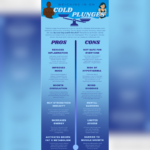You fall into a deep sleep, then jerk awake to find your bedmate’s elbow wedged deeply in your ribs—again. Loud, persistent snoring at night can do more than test a good relationship—it’s a common sleep apnea warning sign.
Sleep apnea can cause you to stop breathing, sometimes hundreds of times during the night. It results in fragmented sleep and low blood oxygen levels, which can lead to health issues. More on that in a minute. First, there are the 3 main types of sleep apnea1:
- Obstructive Sleep Apnea: Common in people who are overweight because fatty deposits in the neck and throat can block breathing during sleep. Snoring is a symptom of an obstructed throat. When the muscles relax in the back of the throat, the airway closes during inhalation. The sleeper is often unaware of repetitive, tuba-like vocal outbursts (yup, snoring) because breathing stoppages may not trigger full awakening.
- Central Sleep Apnea: Not as common, but this disorder occurs when the brain does not send signals to the body to breathe during sleep. It can be caused by a heart problem, a stroke, or pain medications.
- Complex Sleep Apnea Syndrome: Also less common, this means someone has both obstructive sleep apnea and central sleep apnea.
More than 18 million American adults have sleep apnea.2 The condition is more common among men than women, and African-American and Hispanic men are affected more often than Caucasians.3 But women also suffer from sleep apnea and it is even seen in children. Studies have suggested that as many as 25% of kids diagnosed with attention-deficit hyperactivity disorder may actually have obstructive sleep apnea. Experts say learning difficulties and behavior problems can be the consequence of chronic interrupted sleep.4
Do these symptoms sound familiar? Here are common sleep apnea warning signs:
- Loud snoring
- Gasping for air or choking during sleep
- Episodes where breathing completely stops during sleep, reported by another person
- Excessive daytime sleepiness
- Drowsy driving
- Morning headache
- Waking with a dry mouth or sore throat
- Irritability
- Overeating
If these sleep apnea warning signs describe you or a family member, consider a medical check-up. Not everyone who snores has sleep apnea, but the condition can cause serious health problems, such as high blood pressure, heart attack, weight gain, and even car accidents.
Only a sleep study in a sleep laboratory (or a home sleep study) can show sleep apnea is present and how bad it is. Learn about the sleep study and sleep apnea treatment here.
You’ll likely need a referral from your primary care physician for a sleep study. Before you schedule the test, be sure to check with your health insurance carrier on your copay.
1 Mayo Clinic, “Sleep Apnea Overview”
2 National Sleep Foundation, “Sleep Apnea”
3 American Sleep Apnea Association, “Sleep Apnea Information for Individuals”
4 American Sleep Apnea Association, “Children’s Sleep Apnea”
More Resources:
American Sleep Apnea Association, “Sleep Apnea Information for Individuals”
National Sleep Foundation, “Sleep Disorders/Sleep Apnea”
WebMD, “Sleep Apnea Symptoms














